Murray Brett brushes his hands off after sifting through his Rouge de Bordeaux bread flour inside his Mill at DaySpring Farms. He puts the lid back on the bucket of his fresh batch of organically grown flour.
In 2011, Murray and Paula Brett founded DaySpring Farms, located just 30 minutes outside of Athens, in Danielsville, Georgia. The Bretts began the expansion of their farm in 2014 and in the fall of that same year, they opened the Mill at DaySpring Farms.
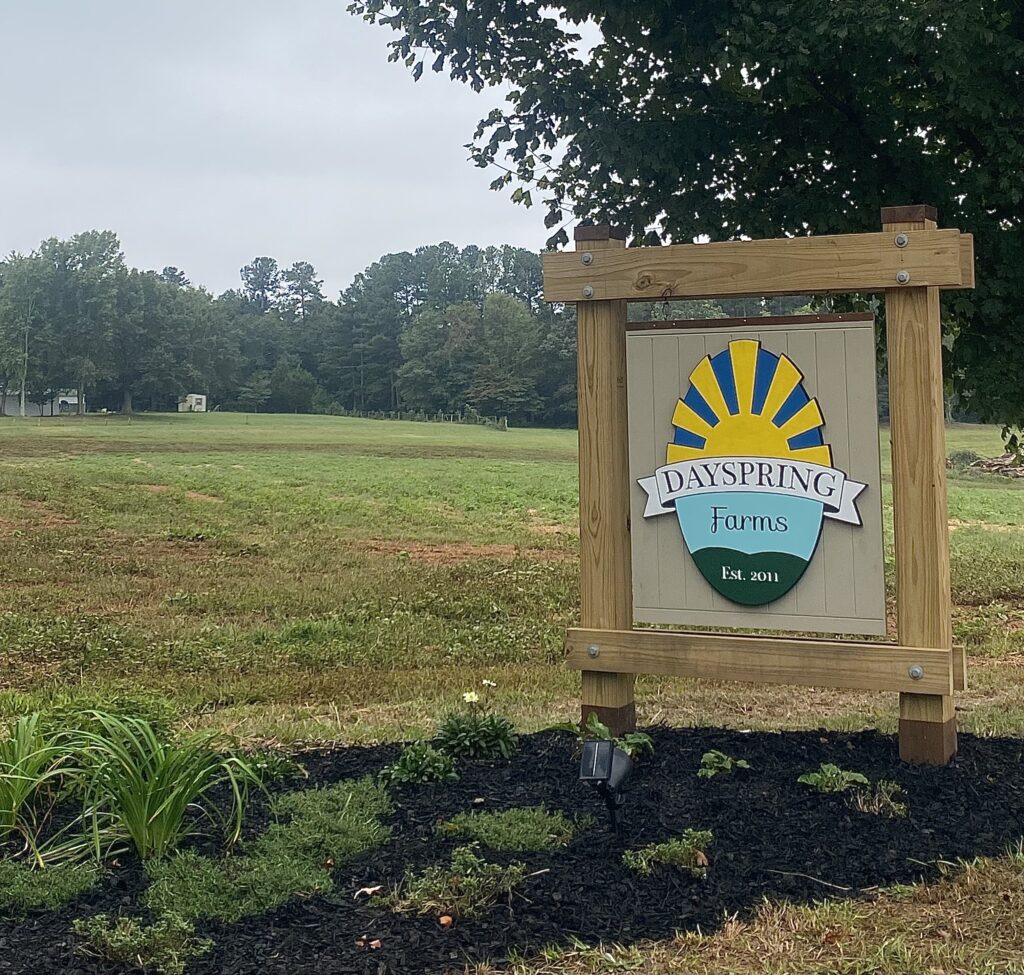
Murray grew up on a conventional farm with his dad just outside of Swainsboro, Georgia, in Emanuel County. He and his wife, Paula, decided to begin farming organically because of their “consciences” and love for the environment. Murray believes there are both health benefits as well as environmental benefits to growing produce organically.
“I grew up on a conventional farm, and I grew up around really dangerous pesticides and herbicides,” Murray says.
Why It’s Newsworthy: People in Athens and all across the United States are affected by air and groundwater pollution. Harmful chemicals used in conventional farming add to this pollution. These local farmers are using techniques that can help reduce the carbon footprint and pollution found in and around Athens.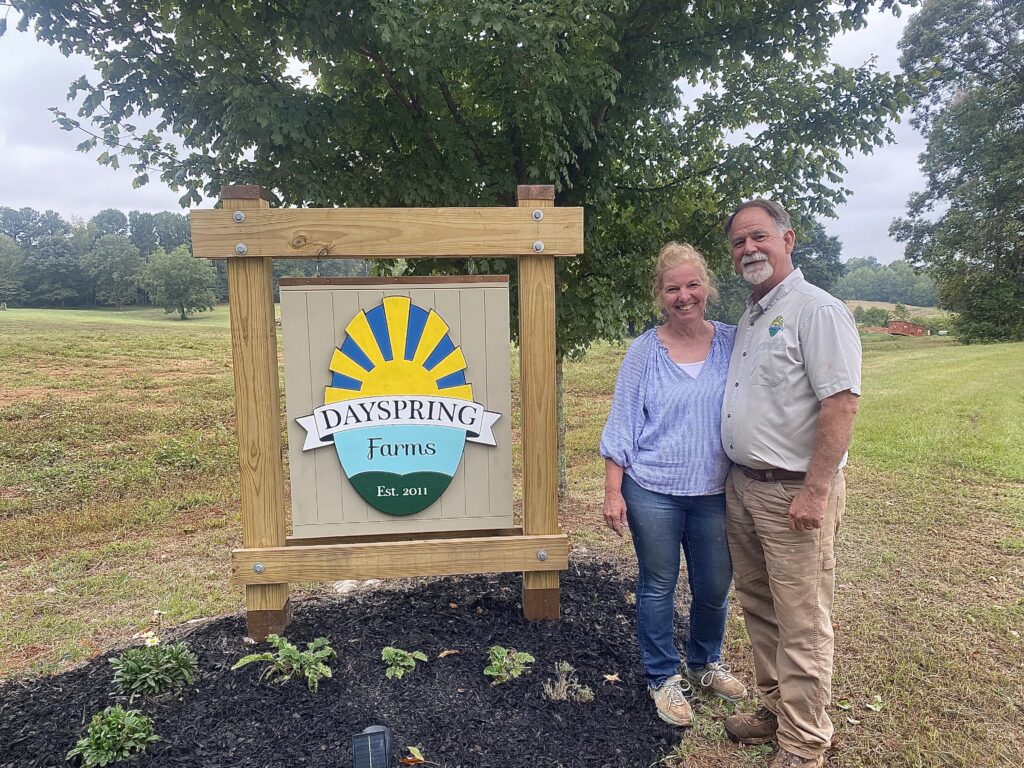
The Bretts describe organic farming as “hard work and an investment of labor.”
The couples’ business offers a variety of products ranging from organically produced bread flour to cream peas. The flours they produce include whole wheat bread flour, Artisan bread flour, all-purpose flour and their specialty, Rouge de Bordeaux bread flour.
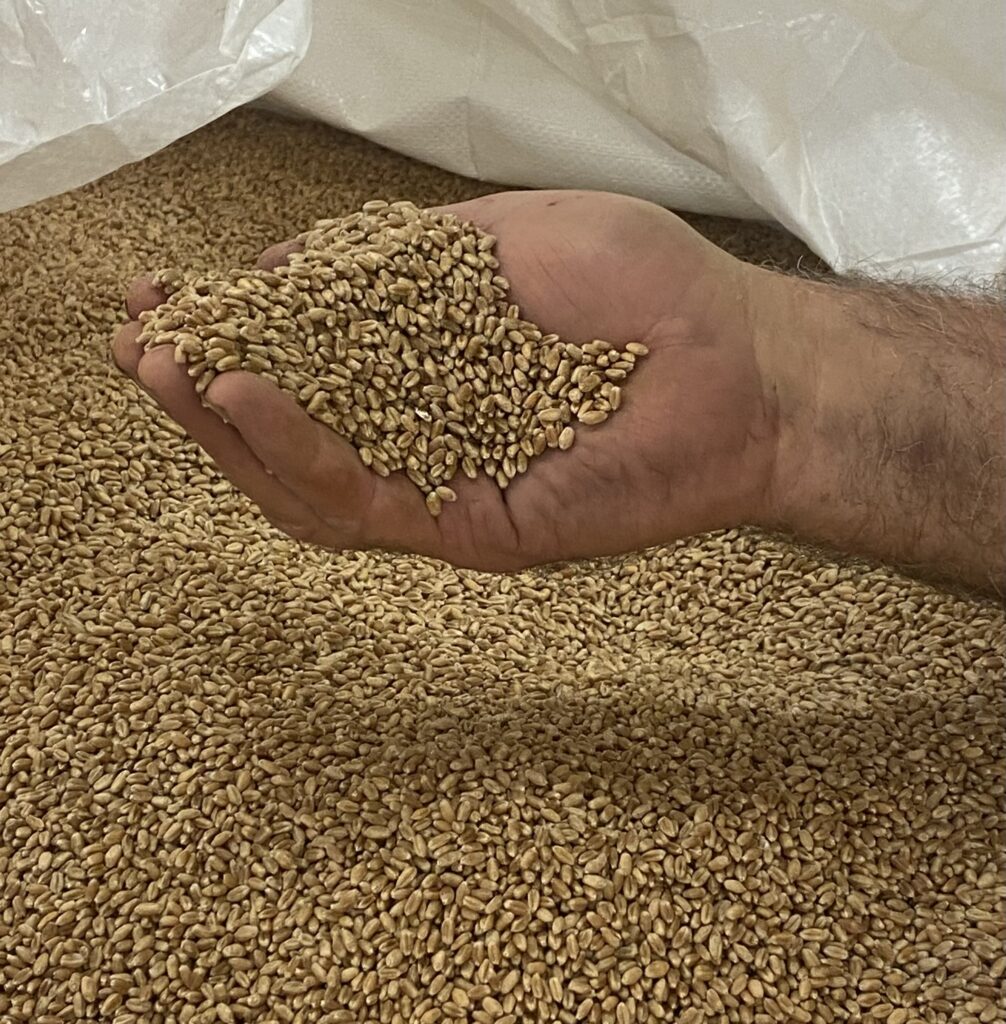
For fertilization of the crops, the Bretts use chicken litter, soy powder and the required amount of Chilean nitrate as a top dress for the wheat. They also use PyGanic, which is an insecticide made from a chrysanthemum flower, in the case of an infestation of caterpillars and worms. Thyme oil is used as well to coat the wheat and keep it safe from fungal infestation after harvest.
Farming under USDA Certified Organic regulations, there are limitations to what the Bretts can apply to their produce for protection against insects and weeds.
“There’s a list of banned chemicals that can’t be used, so you have to sign off on that. And you have to show them what inputs you use. Every year you have to keep records on all inputs,” Murray said.

In 2016, the state of Georgia was home to 83 Certified Organic farms. According to Georgia Organics, there are currently 145 Certified Organic farms in the state of Georgia.
What is Organic Farming?
With farming being one of Georgia’s biggest industries, it is important to know how this can have an impact on our environment. There are things to consider in farming such as figuring out what to use to fight pests and weeds, how to maintain soil health and what to use for fertilization.
Organic farming is a sustainable way to grow produce without using synthetic pesticides and harmful chemical fertilizers. Organic farmers often practice crop rotation, cover cropping and composting. Using techniques such as crop rotation and cover cropping are used to keep the soil healthy.
Cover cropping means that farmers grow certain plants in order to improve or maintain soil health. These crops are often planted for the purpose of benefiting the soil health and are not usually planted for harvesting. Some examples of cover crops are buckwheat and rye.
Farmers also utilize local fertilizers rather than synthetic, man-made fertilizers. The goal is that these techniques result in a smaller carbon footprint, reduce air and groundwater pollution and help build soil health. Farmers use these clean practices as a way to sustain the land and look out for the environment.
Organic produce has quickly become more popular over the last few years. According to the Organic Trade Association, base sales for organic products in 2019 was under $60 billion. The organic product sales have increased since then, bringing that total to $69.7 billion for 2023.
According to the United States Geological Survey, in 2019, the amount of glyphosate used in wheat was estimated to be over 200 million pounds. Glyphosate is a type of chemical used as an herbicide to kill weeds and other grasses.
Pesticide and herbicide use can contribute to groundwater contamination, which is harmful to the soil and has potentially harmful side effects to human health as well. Contaminating the groundwater can also put aquatic systems at risk. According to the Environmental Protection Agency, approximately 500,000 tons of pesticides are applied to crops in the United States each year.
Farming organically is an efficient way to reduce the reliance of synthetic chemicals or GMOs in agriculture across the United States. Farming practices such as crop rotation and utilizing cover crops can help to preserve biodiversity as well as limit the need for chemical inputs, which is a term used to describe resources used in farm production. Crop rotation can help break down these disease cycles and maintain nutrient availability in the soil.
“We definitely rotate where we put things and try not to deplete the soil too much,” said Carolyn Schew, communications manager for Diamond Hill Farm, an organic farm located in Winterville, Georgia.
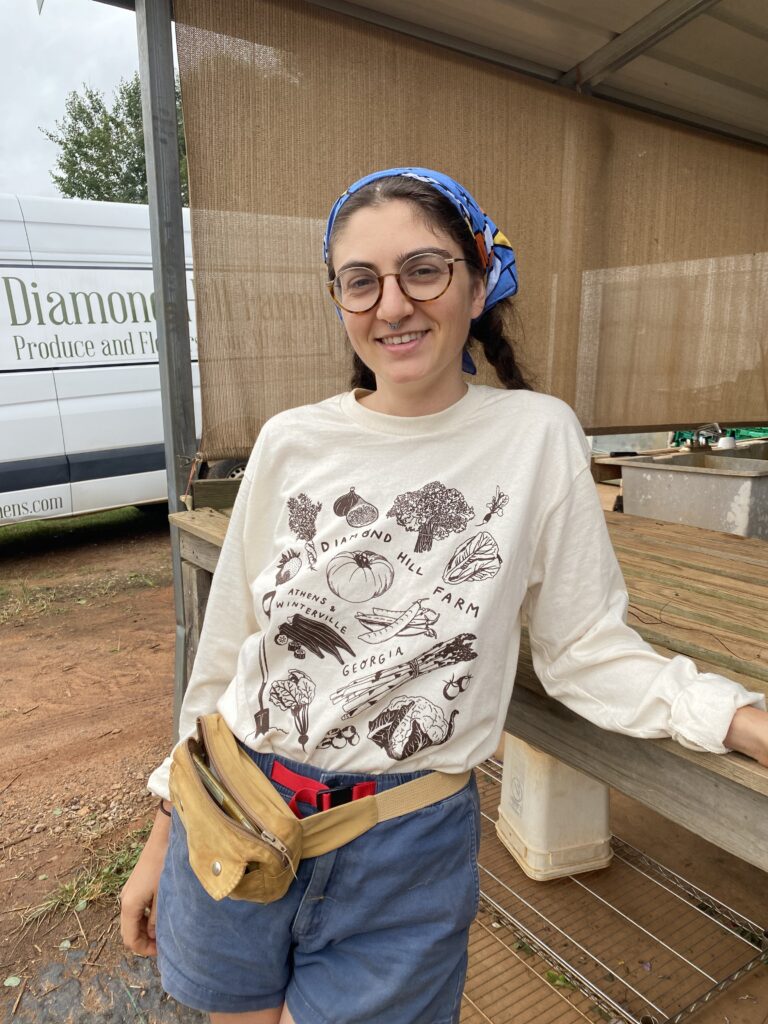
Greenhouse Gases and Climate Research
Pam Knox, senior public services associate and director of the University of Georgia Weather Network, says that organic farmers “might use cow manure or something like that to help with their fertilization.” Natural fertilizers contain less nitrogen than chemical or synthetic fertilizers.

“And, you know, some of the fertilizers that people use in conventional farming can come from like Ukraine and other places like that, so you’re paying for all that transportation cost in the form of extra greenhouse gases,” says Knox.
According to the USDA Economic Research Service, agriculture is responsible for 10.6% of greenhouse gas emissions in the United States for 2021.
Challenges of Organic Farming
It is no secret that organic farming costs more and some may argue that it is also more time consuming compared to traditional farming. Conventional farmers often use heavy equipment such as large tractors, plows, fertilizer spreaders and sprayers. Organic farmers often rely on physical and manual labor to get the job done.
Murray Brett, owner of DaySpring Farms, also mentions that organic farming is “low yield” and cannot produce as much or produce as quickly as a conventional farm, which is another reason that organic food and produce costs more.
Schew explains there are some limitations to organic farming that she has seen and experienced as well.
“We value our ideologies that have brought us to organic farming, but they still impose limitations on what we’re able to produce, because we don’t have these artificial GMO seeds that produce three times as much peppers as the organic seeds do. You don’t have pesticides or herbicides that kill all the weeds except for the crop,” Schew says.
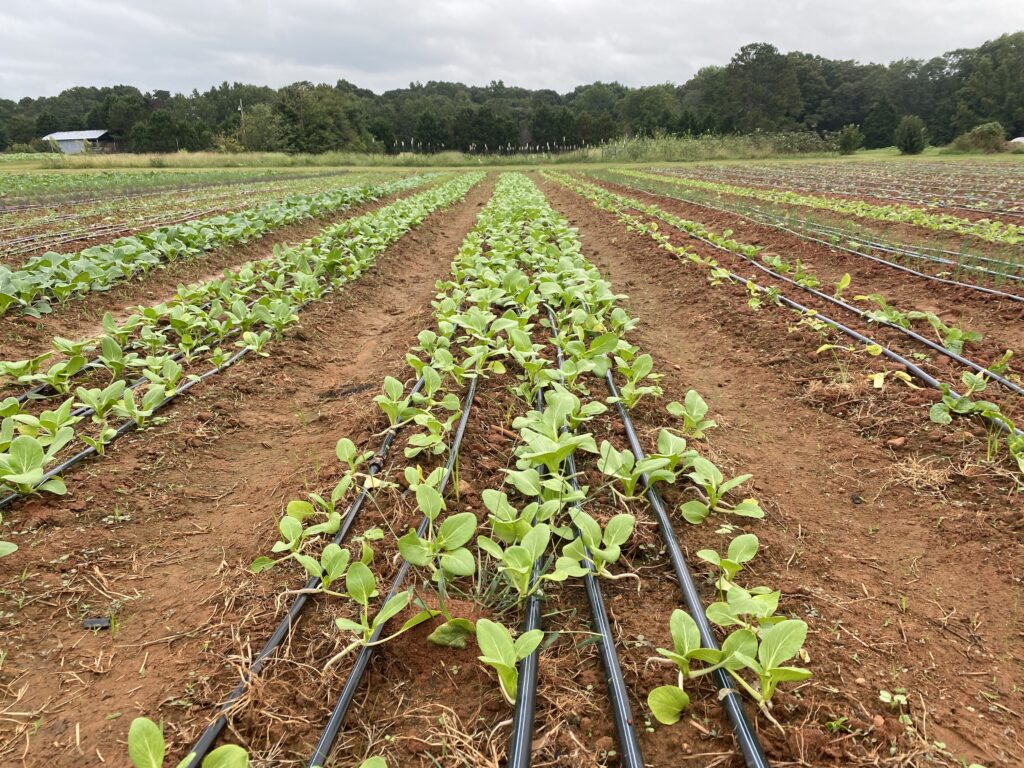
Organic farming is not for the faint of heart. It takes time, manual labor and commitment, according to Brett.
“None of us knew the investment of labor and money and time that it would take to become profitable, but we have become profitable. And it’s a viable business,” says Brett.
Suzanna Woodall is a senior majoring in journalism.


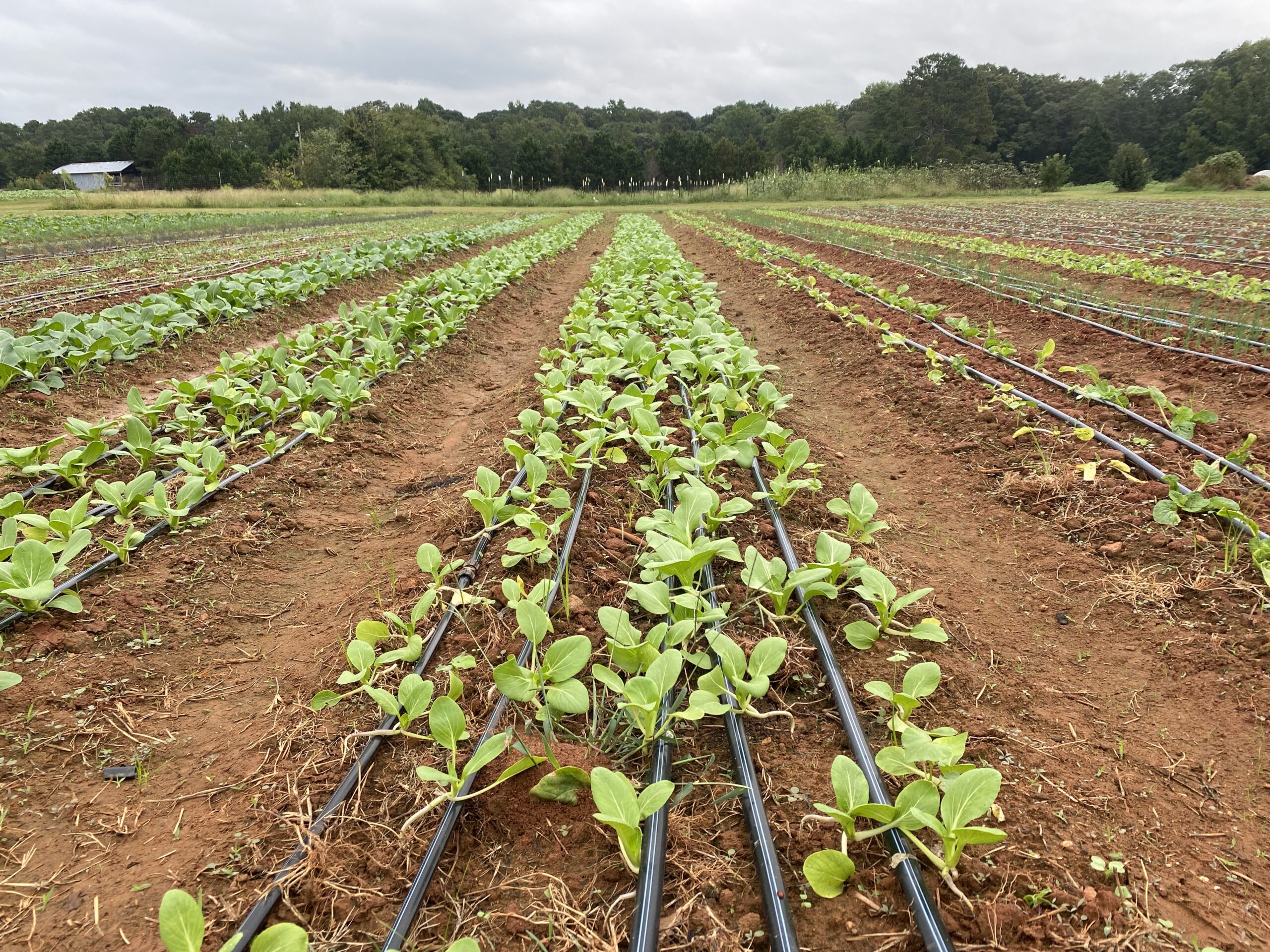


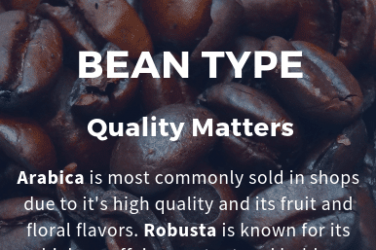



Show Comments (0)